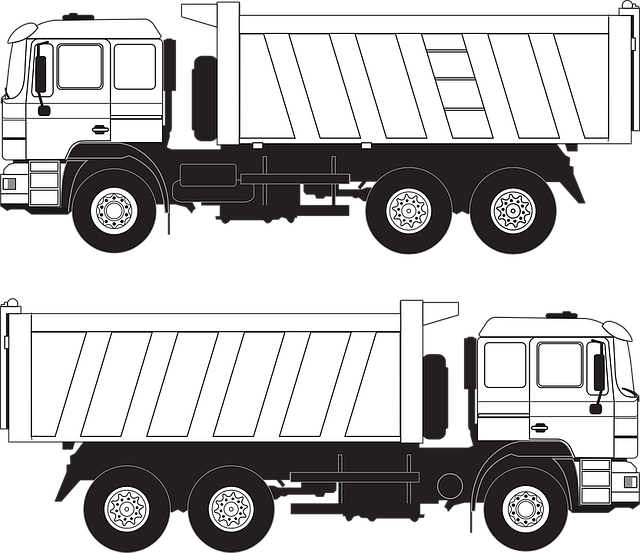Small fleet operators in the trucking industry need clear, transparent policy terms for effective risk management. The best coverage includes comprehensive fleet insurance with tailored policies offering small fleet liability and cargo protection, fostering trust through understanding. By prioritizing transparency, operators can access specialized multi-truck coverage options, making informed decisions to secure robust asset protection. Key elements include physical damage insurance, specific fleet policies, and evaluating crucial components for optimal risk mitigation.
In today’s complex insurance landscape, small fleet operators face a daunting task when it comes to understanding and prioritizing their policy terms. This article delves into the critical importance of transparency in trucking insurance, emphasizing clear language for building trust. We explore key components of fleet policies, breaking down liability, cargo protection, and physical damage coverage. Additionally, we provide best practices and top-rated solutions, offering strategies for small fleet operators to secure comprehensive protection without overpaying, ensuring optimal coverage tailored to their unique operational needs.
The Importance of Transparency in Policy Terms and Conditions

In the complex world of trucking and fleet management, clarity and transparency in policy terms and conditions are paramount. For small fleet operators navigating a competitive market, understanding their insurance coverage is crucial to mitigating risks and ensuring smooth operations. The best coverage small fleet operators can secure includes comprehensive fleet insurance that goes beyond basic physical damage insurance. Top-rated trucking insurance providers offer tailored fleet policies, considering the unique needs of multi-truck operations and providing robust protection for both vehicles and cargo.
Small fleet liability coverage is an essential component of this strategy, shielding operators from potential financial losses due to accidents or legal issues. Cargo protection plans further safeguard valuable goods during transit, ensuring that businesses maintain their reputation and financial stability. By prioritizing transparency in policy terms, small fleet operators can make informed decisions, choose the right coverage, and access multi-truck coverage options tailored to their specific requirements, ultimately fostering a culture of trust and understanding within their operations.
– Exploring the need for clear and understandable language in insurance policies

In the complex landscape of insurance, especially for small fleet operators navigating the competitive trucking industry, clarity in policy terms is more than just a preference—it’s a necessity. The need for understandable language arises from the fact that insurers offer a range of tailored fleet policies, including best coverage small fleet operators seek, comprehensive fleet insurance, and top-rated trucking insurance. These policies encompass various protections such as small fleet liability coverage, cargo protection plans, and physical damage insurance. By using simple, accessible language, insurance providers enable their clients to make informed decisions about their multi-truck coverage options.
This transparency is crucial in fostering trust between insurers and policyholders. It ensures that small fleet operators fully comprehend the scope of their coverage, what’s excluded, and how claims are handled. In light of these considerations, it’s worth noting that clear communication can prevent misunderstandings, reduce stress during claim processes, and ultimately enhance the overall customer experience—a key differentiator in a competitive market offering diverse cargo protection plans and tailored solutions for various business needs.
– Impact of transparency on building trust between insurers and small fleet operators

Transparency plays a pivotal role in fostering trust between insurers and small fleet operators. When policy terms and conditions are clear, concise, and easily accessible, it empowers small business owners to understand their coverage extensively. This knowledge ensures they can make informed decisions regarding their comprehensive fleet insurance needs, choosing the best plan that aligns with their specific operational requirements. For instance, small fleet operators seeking top-rated trucking insurance or multi-truck coverage options will be better equipped to identify policies offering the ideal balance between small fleet liability coverage, cargo protection plans, and physical damage insurance.
By promoting transparency, insurers can build a reputation for integrity and reliability. Clear communication builds trust, encouraging small fleet operators to view their insurer as a partner rather than just a service provider. This relationship is particularly crucial when navigating complex tailored fleet policies, ensuring that every party understands the obligations and benefits associated with the chosen best coverage small fleet operators options.
Understanding Key Components of Fleet Insurance Policies

For small fleet operators, navigating the complex landscape of trucking insurance can be a daunting task. However, achieving transparency and understanding in policy terms and conditions is paramount for making informed decisions. The best coverage for small fleets should encompass a comprehensive suite of protections designed to mitigate risks unique to their operations. This includes top-rated trucking insurance that combines physical damage insurance with tailored fleet policies to safeguard against various liabilities.
Key components of fleet insurance policies include small fleet liability coverage, which protects against claims arising from accidents or incidents involving the vehicles under the fleet’s ownership. Additionally, cargo protection plans are essential for safeguarding the goods being transported, ensuring compensation for loss or damage during transit. By evaluating these crucial elements and understanding the available multi-truck coverage options, operators can secure robust protection for their assets and operations, fostering a culture of transparency and trust in their insurance arrangements.
Ensuring transparency and clarity in policy terms and conditions is pivotal for fostering trust between insurers and small fleet operators. By employing understandable language and highlighting essential components like best coverage, comprehensive fleet insurance, liability protection, and cargo security, insurers can empower operators to make informed decisions. This approach not only simplifies the selection process but also strengthens the relationship, ensuring that small fleet owners receive top-rated trucking insurance tailored to their unique needs, including physical damage protection and multi-truck coverage options. Ultimately, prioritizing transparency benefits both parties, leading to a safer and more secure operational environment.
